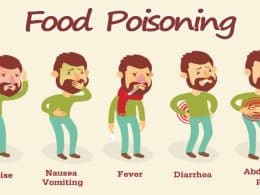The egg diet is a low-calorie, low-carbohydrate, But protein-rich diet. The egg diet is solely designed to help in weight loss without losing the necessary protein needed to build up muscles. It involves egg consumption as the major source of protein.
The egg diet comes in various versions, however, each version only allows water or beverages with zero calories. Foods rich in carbohydrates and natural sugars, such as fruits, bread, rice, cassava and pasta are omitted from this diet, which commonly lasts for about 14 days.
You are also not allowed to eat snacks, (making sure to maintain breakfast, lunch, and dinner), except water and drinks rich in calories.
Meal plan for egg diet
Even though they all work the same way, there are several types of egg diet. You can simply begin your day with eggs, and then continue eating smaller portions of lean protein for the entire day.
Example of lean protein foods include;
- Chicken
- Turkey
- Eggs
Fruits and vegetables that are allowed include;
- Spinach
- Broccoli
- Mushroom
- Zucchini
- Grapefruit
- Asparagus
Some egg diet meal plan may include;
| Breakfast | A grapefruit and 2 eggs (boiled), or 2 egg omelet with mushrooms and spinach. |
| Lunch | Half roasted chicken breast with broccoli |
| Dinner | Green salad with fish |
Another egg diet may include grapefruit and egg. Half of a grapefruit can be taken with each meal instead of just twice a day. The meal plan would include;
| Breakfast | Half grapefruit with 2 eggs (boiled) |
| Lunch | Half roasted chicken, half grapefruit, and broccoli |
| Dinner | A serving of fish and half grapefruit |
Another uncommon version of egg diet, which is also regarded as the “extreme” egg diet, allows for people to only eat eggs (hard-boiled) and water for 14 days.
This diet is not readily recommended, since it can cause severe imbalance and malnutrition.
The side effects of egg diet
1. The common side effects of egg diet is extreme tiredness people feel from rapid reduction of carbs. This makes exercising difficult.
2. Your digestive system may also experience difficulty adjusting to a sudden change to protein-rich and low-carb diet. Nausea, flatulence, constipation, and bad breath may also be experienced as a result.
3. Eggs contain high level of cholesterol with about 186 grams, or 63% of daily recommended intake. Nonetheless, research shows us that we we don’t have to worry much about the cholesterol in foods in relations with the health of our heart. It is the saturated and trans fat that we need to look out for.
4. Studies carried out in 2015 reported that men are at 30% higher risk of having heart complications if they consume at least 6 eggs in a week. They also put themselves at the risk of having ischemic stroke.
Since eggs have no fiber, one needs to be very careful to moderately add other foods that have fiber in them. This helps to maintain a healthy bowel function and keep your health gut bacteria active.
5. Since it is difficult to maintain this type of diet, many people who tried it have been known to revert back to their old eating habits once it’s over. They would also likely gain back their lost weight, if not more, leading to yo-yo dieting. And this can be very unhealthy.
Is egg diet safe?
It has been generally agreed in the medical communities that in all the ways to lose weight, egg diet isn’t the healthiest or safest.
According to Harvard Medical School, it is unhealthy for women to consume below 1,200 calories in a day, and 1,500 for men, unless they are being supervised by medical professionals. However, your calories may come under 1,000 calories in a day when following any type of egg diet.
Consuming up to seven eggs or more per week, seems to be healthy for everyone. With very little or no influence on cardiovascular risk. Eating up to seven or more eggs could considerably reduced the risk of having stroke.
It was a surprise when study carried out in 2015 confirmed that some people living with diabetes can liberally eat eggs than we all thought. They could even eat up to 12 eggs in a week, without any issue controlling their blood sugar or cholesterol levels.
Consuming the needed fiber everyday is very important in keeping gut bacteria healthy. Americans are already below the daily recommended fiber intake.
An egg diet could cause complications if a person is already has low fiber intake, especially since fiber is commonly found in legumes, nuts, whole grains, seeds, fruits, and vegetables.
You can discuss with your dietician on the egg diet that best suits you. Feel free to share your thoughts with us in the comments below.









